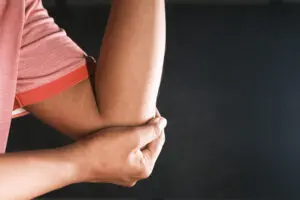When it comes to personal injury cases, premises liability and slip and fall accidents are often terms used interchangeably. However, it’s important to understand the subtle differences between these two concepts. While slip and fall accidents can be a type of premises liability case, not all premises liability cases involve slip and fall incidents. By understanding these distinctions, you can better navigate your legal options and seek appropriate recourse for your injuries.
Premises liability is a legal doctrine that holds property owners or occupiers responsible for injuries and damages that occur on their premises. This can include various types of accidents or incidents, including slip and fall accidents, but is not limited to them. Premises liability extends to a broader range of circumstances where an individual is injured due to hazardous conditions or negligence on someone else’s property.
On the other hand, slip and fall accidents are a specific subset of premises liability cases. They occur when an individual slips, trips, or falls due to a hazardous condition on someone else’s property. These hazardous conditions can include wet or slippery floors, uneven surfaces, debris, inadequate lighting, or other dangerous situations that could have been prevented with proper maintenance or warning signs.
It’s worth noting that premises liability cases can encompass various other types of accidents beyond slip and fall incidents. These can include cases involving inadequate security leading to assaults, falling objects, structural defects, toxic substances, dog bites, and more. The common thread in premises liability cases is that the property owner or occupier had a duty to maintain a safe environment for visitors, and their failure to do so resulted in harm or injury.
Differentiating between premises liability and slip and fall accidents is essential when seeking legal representation and pursuing a claim. Consulting with an experienced personal injury attorney who specializes in premises liability can help determine the nature of your case and establish the appropriate legal strategy.
By understanding the distinction between premises liability and slip and fall accidents, you can approach your potential claim more accurately and effectively. Whether you were injured in a slip and fall incident or another type of premises liability scenario, consulting with a knowledgeable attorney will ensure that your rights are protected, and you receive fair compensation for your injuries and damages.
What is involved in a premises liability case and how is it different than a slip and fall case?
Premises liability cases encompass a broad range of legal claims that arise when an individual is injured due to unsafe or hazardous conditions on someone else’s property. These cases typically involve the legal concept that property owners or occupiers have a duty to maintain a safe environment for visitors. One common subset of premises liability cases is slip and fall accidents, but it’s important to recognize the differences between these two types of claims.
In a premises liability case, the injured party must establish several key elements to hold the property owner or occupier responsible for their injuries. These elements typically include:
Duty of Care: The property owner or occupier must owe a duty of care to the injured party. This duty varies depending on the relationship between the parties, such as whether the injured person was an invited guest, licensee, or trespasser.
Breach of Duty: The injured party must demonstrate that the property owner or occupier breached their duty of care by failing to maintain safe conditions on the premises or neglecting to warn about potential hazards.
Causation: The injured party must establish a causal link between the hazardous condition on the property and their injuries. They need to prove that the condition directly caused or significantly contributed to their accident and subsequent harm.
Damages: The injured party must demonstrate the damages they suffered as a result of the accident, which may include medical expenses, pain and suffering, lost wages, and other losses.

On the other hand, slip and fall cases are a specific type of premises liability claim that focuses on accidents caused by hazardous or dangerous conditions that result in a person slipping, tripping, or falling. These hazardous conditions can include wet or slippery floors, uneven surfaces, icy sidewalks, inadequate lighting, or obstacles that should have been removed or properly maintained.
What distinguishes slip and fall cases from other premises liability cases is the specific nature of the accident and the focus on the dangerous condition that caused the fall. However, it’s essential to note that not all premises liability cases involve slip and fall accidents. Other types of premises liability claims can arise from incidents such as inadequate security leading to assaults, falling objects, dog bites, or toxic substance exposure.
To pursue a successful premises liability case, regardless of whether it involves a slip and fall accident or another type of hazardous condition, it is crucial to consult with a knowledgeable personal injury attorney. They will assess the circumstances of your case, gather evidence, navigate complex legal procedures, and help you build a strong claim to seek fair compensation for your injuries and damages.
Premises liability cases encompass a wide range of claims that arise from unsafe conditions on someone else’s property, while slip and fall accidents represent a specific subset of these cases. Understanding the distinction between the two is vital when pursuing a claim and seeking legal representation. By consulting with an experienced attorney, you can navigate the legal process effectively and ensure your rights are protected throughout your premises liability case, regardless of its specific nature.
Here’s how a slip and fall lawyer can assist in your premises liability case
When it comes to premises liability cases, such as slip and fall accidents, having the support and guidance of a skilled and experienced slip and fall lawyer can make a significant difference in the outcome of your claim. These lawyers specialize in navigating the complexities of premises liability law and are well-equipped to help you build a strong case. Here are some ways a slip and fall lawyer can assist you in a premises liability case:
Legal Expertise:
Slip and fall lawyers have in-depth knowledge of premises liability laws and regulations. They understand the legal requirements for establishing liability and can assess the strength of your case. Their expertise enables them to identify potential legal issues, gather the necessary evidence, and craft a solid legal strategy tailored to your specific situation.
Investigation and Evidence Gathering:
Slip and fall lawyers will conduct a thorough investigation into the circumstances surrounding your accident. They will collect evidence such as accident reports, witness statements, surveillance footage, and photographs of the scene. By diligently gathering evidence, they can build a compelling case to establish liability and prove negligence on the part of the property owner or occupier.
Determining Liability:
One of the essential tasks of a slip and fall lawyer is to determine liability. They will carefully analyze the facts of your case, assess the maintenance practices of the property owner or occupier, and identify any negligent actions or failures that contributed to your accident. This process may involve evaluating maintenance records, safety protocols, and compliance with building codes and regulations.
Expert Witnesses:

In some premises liability cases, expert witnesses can play a crucial role. Slip and fall lawyers have access to a network of experts, such as accident reconstruction specialists, engineers, or medical professionals. These experts can provide valuable insights and testimony to support your claim and strengthen your case.
Settlement Negotiations:
Slip and fall lawyers have extensive experience in negotiating with insurance companies and opposing counsel. They understand the tactics employed by insurance adjusters to minimize settlement amounts. Your lawyer will advocate on your behalf, present a strong case supported by evidence, and fight for fair compensation for your injuries, medical expenses, pain and suffering, and other damages.
Litigation Representation:
In cases where settlement negotiations are unsuccessful, a slip and fall lawyer will be prepared to take your case to trial. They will represent your best interests in court, presenting your case before a judge and jury. Your lawyer will be well-versed in courtroom procedures, rules of evidence, and persuasive argumentation to maximize your chances of success.
Guidance and Support:
Dealing with the aftermath of a slip and fall accident can be overwhelming. A compassionate slip and fall lawyer will provide you with the necessary guidance, support, and reassurance throughout the legal process.
They will answer your questions, address your concerns, and keep you informed about the progress of your case, ensuring that you feel supported and well-informed at every stage.
These legal professionals have the expertise, resources, and dedication to navigate the complexities of premises liability law and fight for your rights.
By working with a skilled slip and fall lawyer, you can increase your chances of obtaining fair compensation for your injuries and hold negligent property owners or occupiers accountable for their actions.
In Conclusion
Understanding the difference between premises liability and a slip and fall case is essential when it comes to personal injury claims. While slip and fall accidents are a subset of premises liability cases, it is important to recognize that not all premises liability cases involve slip and fall incidents.
Premises liability refers to the legal responsibility of property owners or occupiers to maintain a safe environment for visitors. It encompasses a broader range of accidents or incidents that occur on someone else’s property, including slip and fall accidents, but extends beyond them. Premises liability cases can involve various circumstances, such as inadequate security, falling objects, structural defects, toxic substances, dog bites, and more. The common thread in premises liability cases is that the property owner or occupier had a duty to maintain a safe environment, and their failure to do so resulted in harm or injury to others.
On the other hand, slip and fall cases specifically pertain to accidents that occur due to hazardous or dangerous conditions on someone else’s property, causing an individual to slip, trip, or fall. These hazardous conditions can include wet or slippery floors, uneven surfaces, inadequate lighting, or obstacles that should have been addressed or warned about. Slip and fall cases focus on the dangerous condition itself and whether the property owner or occupier failed to take reasonable steps to address or warn about it.
Understanding the distinction between premises liability and slip and fall cases is crucial when pursuing a personal injury claim. It allows individuals to accurately assess the nature of their case and determine the appropriate legal strategy. Consulting with a knowledgeable personal injury attorney who specializes in premises liability can help individuals navigate the legal complexities and build a strong case to seek fair compensation for their injuries and damages.
By recognizing the difference between premises liability and slip and fall cases, individuals can approach their claims with clarity and understand the specific elements required to establish liability. Whether a case involves a slip and fall incident or another type of premises liability scenario, seeking the expertise of a qualified attorney is vital to protect one’s rights, gather compelling evidence, and pursue a successful outcome in their personal injury claim.









